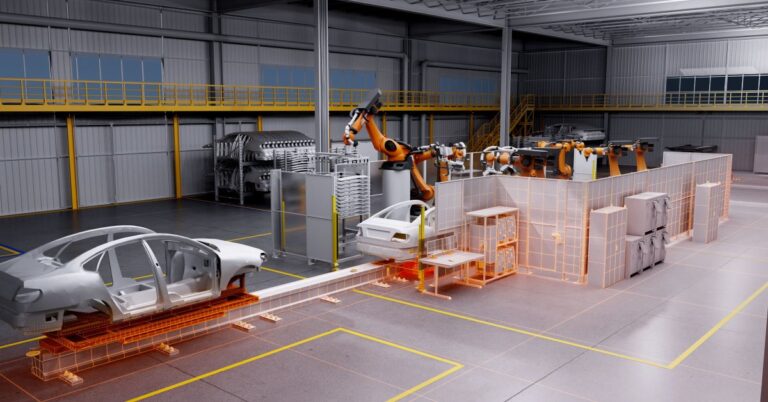There’s a lot of talk about human-centered AI that augments human experience rather than replacing it. But aren’t humanoid robots a mobile technology?
It’s a sensitive topic for many people. The fact is, we have been building pyramid schemes throughout human existence. Every generation expects the next generation to pay for the people who exist today. And now we are facing a potential crisis in which the next generation will actually be smaller in many places. There just isn’t enough labor. Robots are our only hope for creating the services needed to sustain society. How do we do this without advanced manufacturing or advanced transportation using agents with superhuman abilities?
Your job involves creating a digital twin of the real world, called the Omniverse, that allows AI robots to learn how to behave. How does it work?
It’s like a video game. Omniverse is a type of video game, but it is different in that it is not a fantasy world. You’re constrained as accurately as possible by the laws of real-world physics, so you can run tons of simulations to test things. AI and robots think they are in the real world and can put more computing power into it, so they can try things out much faster. For every hour you spend in the real world, you spend millions of hours in the virtual world. Even if you make a mistake, it will not harm anyone.
Are you tempted to call it “The Matrix”?
It may be similar to the Matrix in that it is indistinguishable from the real world. That’s the key. Because at some point you’ll want to transplant a robot’s brain into a real robot and have it work in the real world. And it doesn’t work well when the training object is a cartoonish, unrealistic version.
What do you think will be the first use of AI robotics?
It’s always difficult to predict. There are $100 trillion in things that can be assisted by robots with common functions. I specifically focus on industrial, manufacturing, warehousing, supply chain and logistics. Construction is finally underway. There are not enough people working in our factory. Some robots will be better able to work in areas inaccessible to humans, such as working in nuclear reactors or dangerous mines.
Some worry that the technology could have military applications.
I don’t know if that’s what I’m worried about. I feel like we’ve already created a lot of really scary technology, but somehow, despite our geopolitical conflicts, we’ve found a way to get some sense of what’s okay and what’s not. Ta. All technology is used for better or worse, but I think we can find some way to agree on it.
Nvidia CEO Jensen Huang has been outspoken about the negative effects of U.S. export restrictions. The most advanced chips can’t be sold in China, and it feels like new restrictions are constantly being announced. Concerned about global trade trends?
We comply with all laws of the countries in which we work. We are a United States-based company, and as a matter of course, we not only abide by our rules, but we also respect the fact that our democratically elected government must be the stewards of our nation’s security. Masu. But everyone on the planet, not just the United States, has the right to benefit from these new capabilities. Therefore, we hope that whatever regulations and export controls are introduced, they will be taken into consideration.

